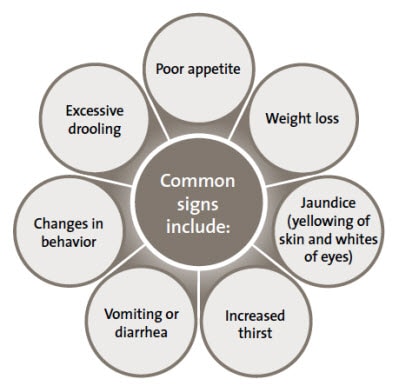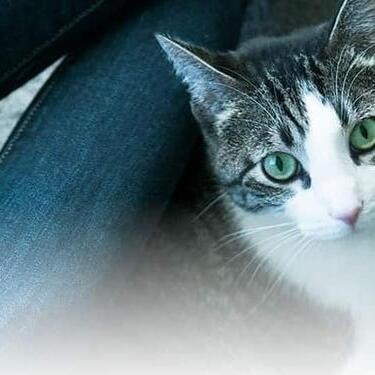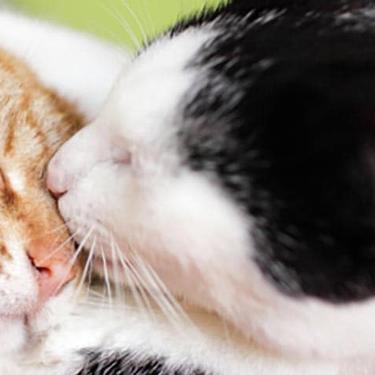
-
Find the right food for your petTake this quiz to see which food may be the best for your furry friend.Find the right food for your petTake this quiz to see which food may be the best for your furry friend.Featured products
 Adult Chicken & Barley Recipe Dog Food
Adult Chicken & Barley Recipe Dog FoodSupports lean muscle and beautiful coat for adult dogs
Shop Now Puppy Large Breed Chicken & Brown Rice Recipe
Puppy Large Breed Chicken & Brown Rice RecipeVital nutrients to support 5 essential building blocks for lifelong health
Shop Now Puppy Sensitive Stomach & Skin Salmon & Brown Rice Recipe
Puppy Sensitive Stomach & Skin Salmon & Brown Rice RecipeDelicious, highly digestible recipe, gentle on stomachs. Nourishes skin & promotes a lustrous coat
Shop NowFeatured products Adult Urinary Hairball Control Chicken & Rice Recipe Cat Food
Adult Urinary Hairball Control Chicken & Rice Recipe Cat FoodActively supports the health of the whole urinary system
Shop Now Kitten Chicken Recipe
Kitten Chicken RecipeVital nutrients to support 5 essential building blocks for lifelong health
Shop Now Adult 7+ Chicken Recipe Cat Food
Adult 7+ Chicken Recipe Cat FoodSupports energy level and beautiful fur in mature cats
Shop Now -
Dog
- Dog Tips & Articles
-
Health Category
- Weight
- Food & Environmental Sensitivities
- Urinary
- Digestive
- Joint
- Kidney
-
Life Stage
- Puppy Nutrition
- Adult Nutrition
- Senior Nutrition
Cat- Cat Tips & Articles
-
Health Category
- Weight
- Skin & Food Sensitivities
- Urinary
- Digestive
- Kidney
-
Life Stage
- Kitten Nutrition
- Adult Nutrition
Featured articles Pet Food Storage Tips
Pet Food Storage TipsDiscover how and where to store your dry, as well as canned, dog and cat food. Learn how to find the "best before" dates on all Hill's pet food packaging.
Read More Water
WaterDiscover why water is the most important nutrient for your dog or cat to live a healthy life. Find out how much water your pet should consume each day.
Read More The Incredible Science Behind Your Pet's Microbiome
The Incredible Science Behind Your Pet's MicrobiomeLearn what a pet's microbiome is, how it contributes to your pet's gut & overall health, and why nutrition is important in maintaining healthy microbiomes.
Read More -


Related Image Content
What is liver disease?
The liver is an important organ with many functions, including the digestion and conversion of nutrients, the removal of toxic substances from the blood, and the storage of vitamins and minerals. Because the liver works to rid the body of so many different substances, it is susceptible to damage from many different sources. Liver disease results in inflammation, known as hepatitis. If untreated, this can lead to loss of function as healthy liver cells are replaced by scar tissue. Diseases elsewhere in the body can also affect the liver’s function.
Fortunately, liver disease can be effectively managed and progression limited. Many cats go on to live happily years after their diagnosis. Proper nutrition and continuous dialogue with your veterinarian are key to managing your cat’s liver disorder.
What causes liver disease?
Factors that increase your cat’s likelihood of developing liver disease include:
Age: Several diseases, including liver dysfunction, are common in geriatric cats.
Breed: Certain breeds, such as Siamese cats, are more likely to be born with or are prone to develop particular liver problems.
Obesity: Cats that are severely overweight may be more likely to develop liver disease.
Medications and chemicals: Medications containing acetaminophen can damage the liver in cats.
Does my cat have liver disease?
The signs of liver disease can be very similar to those of other conditions. If you notice any of the following signs in your cat, contact your veterinarian for a complete examination.
Symptoms to look out for include:
- Poor or loss of appetite
- Sudden weight loss
- Weight loss
- Jaundice (yellowing of gums, whites of the eyes or skin)
- Increased thirst
- Vomiting or diarrhea
- Changes in behavior
- Excessive drooling
- Lack of energy or depression
Other possible signs of liver disorders include dark-colored urine, pale gums, or a build- up of fluid in the abdomen that could be mistaken for sudden weight gain. Your veterinarian can administer other tests to diagnose liver disease.
IMPORTANT: The signs of liver disease are not very specific, making it difficult to recognize. If obese cats stop eating, there could be fatal complications. Cats that lose their appetite for two to three days may experience Feline Hepatic Lipidosis, a condition associated with a dangerous build-up of fat in the liver that impairs proper function. If your cat is not eating, consult your veterinarian immediately.


Tasty Tips
The importance of nutrition
If your cat is diagnosed, you may be wondering how to take care of your cat with liver disease. Treatment of any hepatic disease is aimed at resting the liver and minimizing those functions that have to do with metabolism of fats, proteins, carbohydrates and drugs. When your cat has liver disease, it’s even more important to feed the right cat food. Feed your cat easily digested carbohydrates, high-quality fats and limited amounts of sodium to control ongoing liver damage and improve liver function.
For accurate diagnosis and treatment options, always consult your veterinarian and ask them to recommend the best food for your cat’s liver health.
Ask Your Veterinarian About Liver Disease:
- Are there any foods I should avoid giving my cat because of her condition?
- Ask how human food may affect your cat’s health.
- Would you recommend a Hill’s® Prescription Diet® cat food for my cat’s liver health?
- Ask about special nutritional concerns for your cat
- How much / how often you should feed the recommended food to your cat
- Discuss which treats you can feed your cat with the recommended food
- How quickly should I expect to see signs of improvement in my cat’s condition?
- Can you provide me with written instructions or a booklet on liver disease for my cat?
- What is the best way (email/phone) to reach you or your hospital if I have questions?
- Ask if you need a follow-up appointment.
- Ask if a reminder email or notice will be sent.


One of our staff authors prepared this article for you
Related products

Vital nutrients to support 5 essential building blocks for lifelong health

Actively supports the health of the whole urinary system

Supports energy level and beautiful fur in mature cats

Supports lean muscle and beautiful fur for adult cats
Related articles

Brushing your cat's teeth is just as important as brushing your own. Learn signs or oral health problems in your cat and how to avoid them.

Learn the different factors that might be contributing to your cat's weight gain, and how bigger doesn't always mean better.

Discover how to identify cat sensitive skin and what you can do to help your cat thrive from head to paw.

What is the best food for an overweight cat? Learn all about weight control food for cats, including what's in it and how it works.

Put your cat on a diet without them knowing
Our low calorie formula helps you control your cat's weight. It's packed with high-quality protein for building lean muscles, and made with purposeful ingredients for a flavorful, nutritious meal. Clinically proven antioxidants, Vitamin C+E, help promote a healthy immune system.
Put your cat on a diet without them knowing
Our low calorie formula helps you control your cat's weight. It's packed with high-quality protein for building lean muscles, and made with purposeful ingredients for a flavorful, nutritious meal. Clinically proven antioxidants, Vitamin C+E, help promote a healthy immune system.

